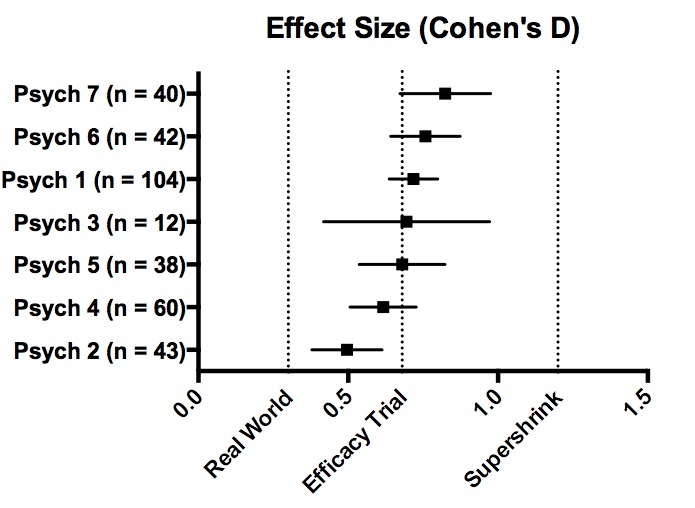Clinical therapy and treatment
Clients Improved in Research Trials
%
Lambert in Bergin & Garfield (2012)
Clients Improved in Real World Studies
%
Hansen, Lambert & Foreman (2006)
Real World Therapy Outcomes are Worse Than They Should Be
Over 60 years of research has been dedicated to the question of whether or not psychological therapies work.
The resounding answer is that YES, psychological therapy does work, and it leads to clinically significant improvements in around 2/3 of people. Unfortunately these findings apply to therapy done well. In the real world, therapy outcomes are far less impressive for a range of reasons including;
- High drop-out rates
- Insufficient session numbers
- Persevering with approaches even when they are not working
- Poor therapeutic alliance
These problems are solvable
The data is now clear. Therapists who measure their outcomes get better results than those who do not. There is a range of measurement tools available, and these can be easily incorporated into routine practice.
Seeking client feedback also improves outcomes. Therapists tend to be the last to know when they have taken a mis-step and seeking prompt feedback from clients at the end of each session has been shown in study after study to improve drop-out rates and improve overall effectiveness.
Aaron has been putting these principles into practice at Benchmark Psychology through tracking client outcomes and seeking client feedback to improve results. This level of data driven accountability is a big shift for mental health and has provided fantastic learning opportunities for Aaron as to how to apply the principles of practice based evidence into a larger organisation

How we use the data
The information collected at Benchmark Psychology not only allows Aaron and the other psychologists to ensure they are delivering the best possible treatment for their clients, it also allows them to more accurately identify their own areas of weakness. When psychologists initially see the graph above it can be somewhat confronting, obviously there is a “Most Effective” and a “Least Effective” psychologist. But looking beyond that, it gives each psychologist three very important pointers:
- An objective measure of how effective they are performing relative to comparable practitioners
- A way of identifying where they can improve their practice
- A personal benchmark to use to determine if they have improved
This data is not used for performance management, rather it is used as part of our culture of feedback, to give each psychologists the tools they need in order to improve their client outcomes.
